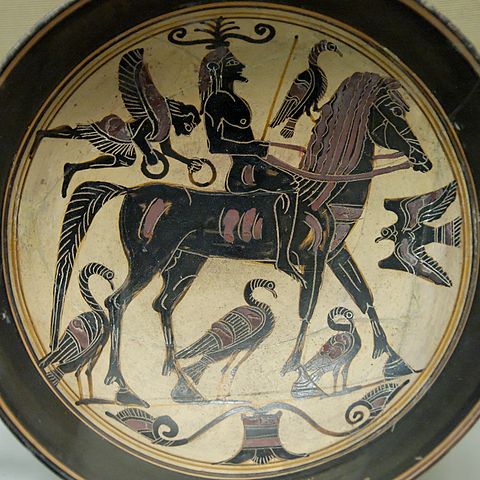
June 18, 2014, by Richard Rawles
CA report: Sparta in Nottingham (1)
Nottingham Teaching Associate Philip Davies and PhD student Peter Davies (no relation) report on the first of two Sparta panels at the recent CA conference. You can now read their second report here.
Nottingham recently hosted the Annual Conference of the Classical Association, the biggest Classics and Ancient History gathering in the UK. The conference was a great success, and represented a rare opportunity for scholars researching the history, culture, and reception of ancient Sparta. Major advances have been made in this field in recent years, not least through the groundbreaking research of our own Professor Stephen Hodkinson, and his partnership with Anton Powell as organisers and editors of the International Sparta Seminar and its publications. This work has been crucial in developing what has become the new orthodoxy in Spartan studies. Nottingham is home to a number of researchers working on Sparta, and to the Centre for Spartan and Peloponnesian Studies – a research centre dedicated to Sparta and other states of the Peloponnese. The CSPS asked us to organise not one, but two panels on topics relating to Sparta. A report on the second panel follows in a later post.
The first panel brought together four papers providing ‘New Perspectives on the Spartiatai’ – Sparta’s citizen community – and addressing aspects of the important theme of Spartan exceptionality.
Maciej Daszuta (PhD student, Liverpool and Warsaw), spoke on ‘The Spartan oikos and the Spartan State’. In opposition to a common perception of Sparta as an overridingly state-controlled society, in which the role of the oikos (household/family) was limited to producing fit and loyal citizens, Maciej highlighted ancient testimonies suggesting that the oikos had a prominent place within Spartan society, not so dissimilar from that found elsewhere in the Greek world.
Stephen Hodkinson, Director of the CSPS, took up a related theme in his paper on ‘Koinōniai and Spartiate Everyday Life’. Utilising an approach pioneered by our own Kostas Vlassopoulos, Stephen highlighted the diversity of public and private associations (koinōniai) which existed in Spartan society and the considerable influence which these held. He argued that this ‘grassroots perspective’ on Spartan society provided a useful counterpoint to the common image of Spartan society as dominated by a quasi-totalitarian state.
Philip Davies spoke on ‘The Institutional and Personal Standing of the Spartan Elite’. Philip demonstrated that the Spartan citizen stratum contained an elite largely analogous to the elites of other Greek states: maintaining an elevated social position whilst lacking clear institutional prerogatives. However, considering the presence within this elite of Sparta’s two royal houses, he suggested that this situation granted special significance to connections which elite families could forge with the royal houses through marriage etc. In this respect, Spartan society was genuinely exceptional.
Jackie Whalen (PhD student, St. Andrews) spoke on ‘Mapping Austerity in Sparta’s Sacred Landscape’. Addressing the perception that Spartan society was exceptionally austere, Jackie showed that, with Sparta lying between two imposing mountain-ranges, its major religious sites stood within a naturally monumental landscape. She argued that Spartans will have been conscious of this landscape, and that these natural features must be taken into account when we judge Sparta’s appearance against that of Athens, as Thucydides and many modern scholars have done.
Picture: name-vase of the Rider Painter. Laconian black-figure cup, ca. 550-30 BC. London, British Museum B1. https://en.wikipedia.org/wiki/File:Rider_BM_B1.jpg Public domain.

[…] Davies (no relation) report on the second of two Sparta panels at the recent CA conference. See here for their first […]